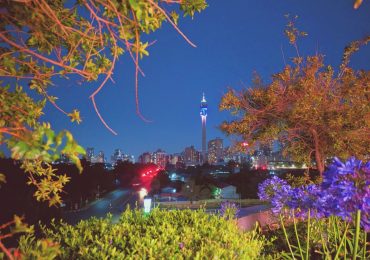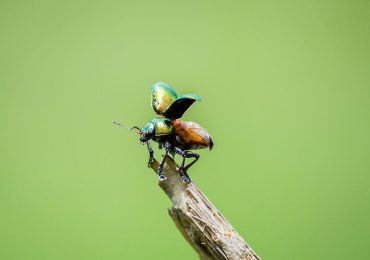The shortlist for the 2024 Caine Prize for African Writing, awarded annually for a short story by an African writer published in English, has been announced.
The winner of the prize receives £10,000 (about R234,000), and each shortlisted writer £500.
The five shortlisted stories were selected from a pool of 320 entries from 28 African countries: South Africa, Kenya, Zambia, Nigeria, Rwanda, Zimbabwe, Lesotho, Sierra Leone, Somalia, Tanzania, Ghana, Uganda, Ethiopia, Namibia, Morocco, Gambia, Senegal, Eritrea, Malawi, Liberia, Botswana, Equatorial Guinea, South Sudan, Mauritius, Ethiopia, Libya, Algeria and Cameroon.
2023 Caine Prize shortlist
- Tryphena Yeboah (Ghana) for ‘The Dishwashing Women’, Narrative Magazine (Fall 2022)
- Nadia Davids (South Africa) for ‘Bridling’, The Georgia Review (2023)
- Samuel Kọ́láwọ́lé (Nigeria) for ‘Adjustment of Status’, New England Review, Vol. 44, #3 (Summer 2023)
- Uche Okonkwo (Nigeria) for ‘Animals’, ZYZZYVA (2024)
- ’Pemi Aguda (Nigeria) for ‘Breastmilk’, One Story, Issue #227 (2021)
In addition, Zimbabwean writer Yvette Ndlovu received an honourable mention.
Chika Unigwe, chair of judges, said:
‘The judging process was both challenging and rewarding. We read over two-hundred eligible stories, uncovering many gems from both familiar and new writers. Our discussions were passionate, and when we reached our (unofficial) longlist, we wished we could have included every story. Our consolation is knowing that these works are out in the world, being read, recognised with other prizes, and receiving the attention they deserve.
‘The shortlist and the honourable mention (Zimbabwe’s Yvette Ndlovu), span four countries and include writers at various stages of their promising careers. These stories, ranging from speculative to realistic, cover diverse subject matter but share a common thread: they are compelling, universal human stories. They offer insights into our societies, governments, cultures and the broader world, ultimately posing the fundamental question that all great art asks: How do we navigate life? They explore this question with empathy, thoughtfulness, humour and prose that is both sublime and accessible.
‘So, how do we navigate life? In these stories, we do so with regrets, survival, performance, resistance and, ultimately, living. Throughout, we strive to be seen. We are incredibly proud of this outstanding shortlist and our honourable mention. Congratulations to all the writers!’
Unigwe is joined on the panel by Zimbabwean writer, scholar and filmmaker Siphiwe Gloria Ndlovu; Julianknxx, a Sierra Leonean poet, artist and filmmaker based in London; Tumi Molekane, aka Stogie T, a South African hip-hop artist; and Ghanaian writer Ayesha Harruna Attah, who is based in Senegal.
The winner will be announced on 17 September over a pre-recorded address. The shortlisted stories will be published in the Caine Prize anthology alongside a selection of stories written at the Caine Prize Workshop, which was held this year in Malawi.
It is twenty-four years since Leila Aboulela was announced as the winner of the inaugural Caine Prize at a small gathering at the Bodleian Library in Oxford, United Kingdom, followed a few days later by an official award ceremony in Zimbabwe.
This year the Caine Prize has declared that it will ‘re-centre the announcement on the African continent’, with a planned year-long celebration of the prize’s twenty-fifth anniversary in 2025. Events will include readings and discussions involving the shortlisted writers and past winners, and tributes to writers such as the late Charles Mungoshi (Zimbabwe), who was shortlisted in 2000, and the late Binyavanga Wainaina (Kenya), who won the award in 2002.
Ellah Wakatama, chair of The Caine Prize board of trustees, said:
‘As chair, I look forward to using the 2024 prize as an opportunity to amplify my publishing colleagues’ efforts to highlight Africa’s rich writing history and showcasing the best of Africa’s new voices. I hope that this year’s format will spark wide curiosity and interest in past and contemporary literature from the country that birthed and influenced this year’s winner. This fresh approach also ties in with our goal of hosting more events on the continent during our twenty-fifth anniversary celebrations. For twenty-four years the prize has helped bring African writers to the literary world stage. We are now taking the world to Africa and its writers. We welcome your encouragement, support and commitment as we boldly move forward.’





